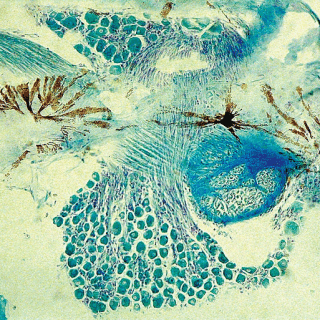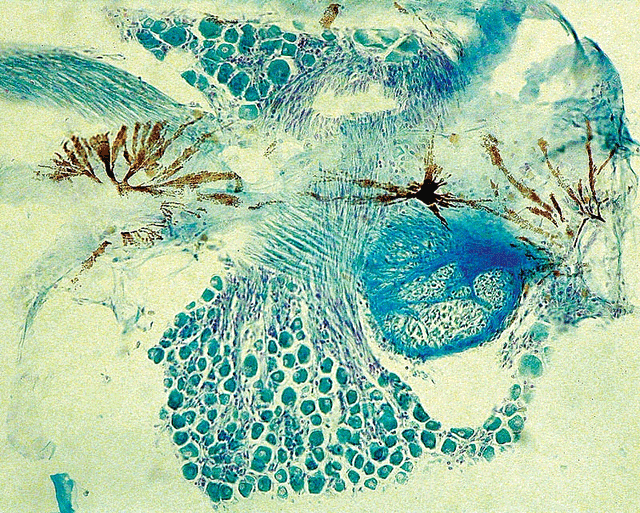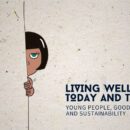
Having spent a delightful half hour stimulating my pleasure circuits with Peter Sterling’s addictively insightful essay—and a further (slightly less delightful) two hours trying to free up some mapping circuits in my overcrowded brain to understand a bit more about neuroscience—I have come to the conclusion that Peter Sterling is a very wicked man. In the same short article, he has succeeded both in stimulating my appetite to know more and convincing me that, at this stage in my life, I probably no longer have the brain capacity to do so.
Yet even as I struggled with the question “Which already crowded circuits would I like to dispose of to find space for this precocious newcomer?” (It was a tough choice between the names of my children [they already blur quite a bit on a rough day] and my ability to beat Paul Raskin at chess [more fictional than real, admittedly]), I couldn’t help but find some puzzling anomalies in this account of our collective engagement with “pleasure.”
At the very least, there seem to be some steps missing from the analysis. I can’t quite equate short-term dopamine highs with my own experience of the process of learning. I confess I got a little stab of pleasure from the clarity of Sterling’s prose—and the sneaky feeling I was half-understanding something that might just be important. Personally, I put this down to an excessively puritanical childhood with overbearing teachers who would occasionally refrain from humiliating chastisement if I showed sufficient signs of intellectual advancement: the absence of pain may be a proxy for pleasure.
But the subsequent two hours of trying to learn a little bit more about the complex literature behind the article was nothing short of unadulterated discomfort. I could literally feel my mapping circuits wiping each other out in a desperate struggle not to be consigned to oblivion in order to make space for this seductive usurper. (Ultimately, I suspect, I may never play Beethoven’s “Moonlight Sonata” from memory again.)
Admittedly, at the end of those two hours (and some more fascinating insights into Sterling’s work), I was pretty much desperate for one of the allowable pleasures on his “holiday” list. Since I was alone at the time—out of sight of nature and miles from a gym—and (as I may have mentioned) my musical abilities have been seriously diminished, I am afraid the pleasures to which I turned were unashamedly sugar-related. But here is the irreconcilable thing. Why did I bother with those two hours at all?
Why do we ever constrain our instinct for short-term pleasure? Particularly if, as this essay claims, short-term pleasure is all there is. Why is it that the most fulfilling activities in the long term have more to do with short-term pain than short-term pleasure? Why is writing, to take just one example, so difficult? Why does anyone ever practice the piano? What is the point of climbing mountains in a howling gale? Why does anyone go to university? Why do we ever stick it out in long-term relationships? Why does anybody bother to do any of those things, when the learning processes (bar one or two momentary highlights) are all so intolerably painful?
And why is it that the best (in terms of pleasure) I ever received from immersion in a creative task bore no relationship at all to a sugar high, but was instead a kind of surreal absence of being? A sense of no longer being there. The feeling of being absorbed in and by the object of my attention.
Neither of these responses (sheer anguish or self-dissolution) seems to have the characteristics of short-term pleasure circuits. Nor is either particularly addictive. True, some people do get addicted to the climb, but for most ordinary mortals, the aftermath of a long ascent is not the next mad excursion but a warm shower, a good meal, and a long sleep. Tomorrow will be a much more ordinary day. And for the most part, I have no regrets about that at all. Peak experiences tend to live on for decades, without the need for constant reinforcement or repetition.
In fact, the peak experience model of human satisfaction is anything but a short-term “satisfaction circuit.” It is the ability of the human psyche to hold out for something almost illusory in the face of a long and sometimes unending series of setbacks and discomforts. This is, of course, in part about our ability to anticipate pleasure. And it is odd that the essay does not make more of this ability. The only functional relevance of anticipated pleasure in this piece is the role of expectations in diminishing actual pleasure and setting up a cycle of addiction. But it seems to me that Sterling’s own writing makes much more productive use of the predictive power of the human brain than this, most notably in his own model of allostasis.
By the time I got somewhere near a modicum of misunderstanding of allostasis, I believe I had already consigned not just the “Moonlight Sonata” but also most of “The Entertainer” and half my rendition of Adele’s version of Bob Dylan’s classic “Make You Feel My Love” to the vale of endless forgetting. But it is not inconceivable that some of what I had hoped (vainly or not) to achieve in my two hours of tortuous immersion in a thoroughly fascinating literature was the promise of future pleasure. And this dynamic of short-term discomfort in the pursuit of delayed gratification clearly differentiates a more prudential response to the conditions of life from a purely hedonistic one.
I was once tempted to believe that this ability to invest (to use an economic term) in future pleasure even differentiates humans from other species. But I now admit this seems unlikely. I recently spent a half hour watching my son’s pet rat carefully empty her entire food tray nugget by nugget and carry each nugget three floors down to be hidden in the depths of her sleeping cave—never, as it turns out, to be eaten. It is clear that humans are not the only species with an ability to invest hard work in pursuit of the promise of future pleasure.
Indeed, the sociologist Max Weber once traced the roots of capitalism itself back to the Protestant work ethic, which is nothing more than a glorified statement of the power of deferred gratification. It clearly motivates us. It offers a much longer-term view of human behavior in which the future undeniably matters to us in some rather complex ways. It sits comfortably with the notion of the predictive power of the human brain, so why is it not a part of this essay?
To be perfectly honest, though, I do not entirely believe that even this extended version of the pleasure circuit hypothesis is good enough to make sense of the entirety of human experience. Some of what we do appears to have no connection with the pleasure circuit at all.
Why do we work for a future we will never see? Why do we stick around long enough even to remember, let alone forget, the names of our children? Why even now will I drive 100 km in the middle of winter to rescue them from teenage angst? Or stay up half the night to comfort them, when the prudential and long-suffering rat finally makes her predictable exit? Why did we cry when we buried her? Why did any of us care about the rat in the first place? Why do we care about anyone? Why do mothers sacrifice themselves for their children? Why did I once journey six hours to try and see my grandmother one last time and end up kissing her cold disfigured corpse in its last desperate attempt to cling to life? Where is the pleasure in any of this?
If Sterling is to be believed, even what appear to be altruistic acts are accompanied by the release of pleasure-causing chemicals. And they only occur, according to this essay, in certain selected individuals who happen to get pleasure that way. I think this thoroughly mechanistic interpretation of altruism was the part of Peter’s essay when I could begin to see why some respondents actively disliked it. It betrayed a kind of deterministic glee in noting that when you put certain kinds of people (e.g., “natural altruists”) in a brain scanner, you can “see” the firing of satisfaction circuits when they engage in an altruistic act—or equally when they punish non-cooperators. They are no better than us, this seems to say; they just get their kicks in different ways.
As deterministic explanations go, I find this even less appealing than the neo-Darwinian explanations of altruism, beautifully and tragically conveyed by George Price’s “fitness” equation, which insists that altruism survives in the species because it improves the chances of genetic selection in others. (Shortly after formulating the equation, Price converted to an extreme form of Christianity, gave away all his possessions, and eventually committed suicide by slitting his carotid artery in an empty squat in the middle of London.)
The trouble with deterministic explanations is that they confuse mechanism with function and function with purpose. And the funny thing is, Sterling knows this already. Somewhere further down my pile of reading into his previous work, I found his story about the effects of parental conflict on the blood chemistry of children, in which he argued that the best way to treat such children was not to hospitalize and medicate them, but to help resolve the marital conflicts of the parents. “But the idea upon which this rests,” he wrote, “that the brain controls human physiology, still remains largely outside the realm of standard teaching in biology and medicine.” [1]
Don’t get me wrong. I gained a lot of insight from this essay. And nothing I have said detracts from its explanatory power in relation to the sheer addictive power of consumerism in a capitalist society. I even agree fundamentally with the prescriptions for a different kind of culture: more nature, more exercise, more sports, more crafts, more arts, more music, and more sex. I would add a few things to the mix as well: care, creativity, and perhaps even sheer hard work.
But there is something wrong (and possibly even dangerous) about the explanation. It takes no account of the pain of doing all these things. Of the sheer perversity of the human instinct not to prioritize short-term pleasure over longer-term goals. Even the most satisfying of these activities is intimately bound up in psychological, physiological, and cultural processes that are anything but short-term pleasure responses.
Of course, I am deeply concerned about the other lesson I learned from this wonderful essay: that each human brain should choose its battles carefully. So I think this may be the point at which to accept that Sterling’s brain is much better adapted to taking these fascinating ideas forward. And mine is much better adapted (or was adapted) to…well, other things. (It is just a bit sad that, since I drove my mapping circuits into open warfare, I can’t remember what they are anymore!)
This blog is a commentary on an essay by Peter Sterling – and first appeared on the Great Transition Initiative website, Feb 2016.
:: Image (CC BY-NC-ND 2.0) Franck Genten / Flickr





